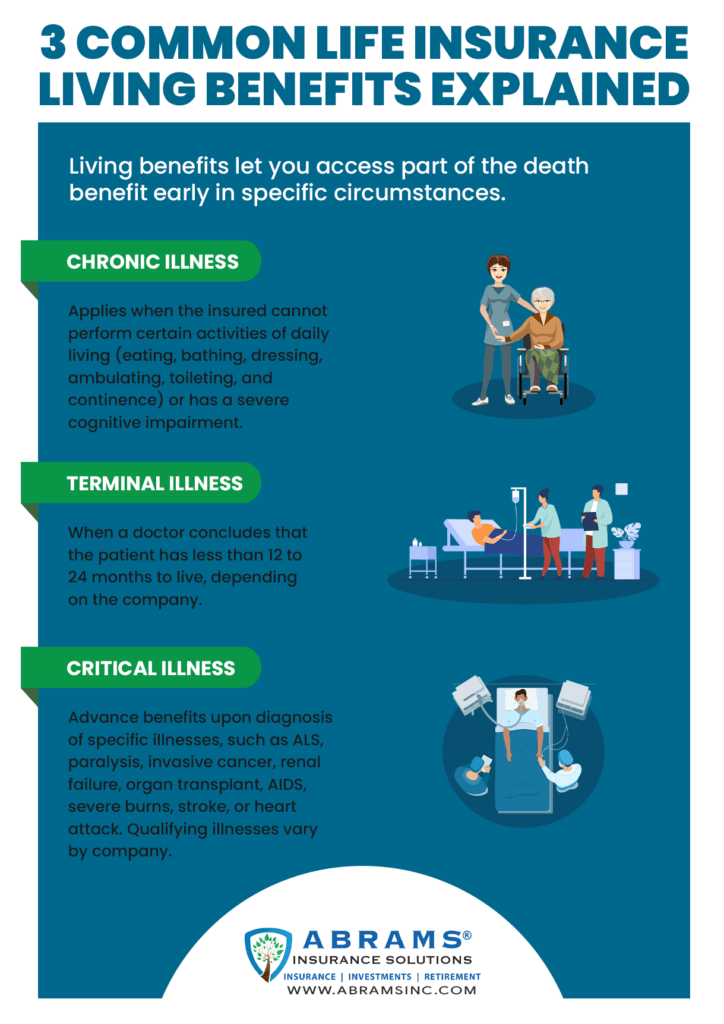Car Accident Head Injuries
Car accidents are a leading cause of head injuries, which can range from mild concussions to severe traumatic brain injuries (TBIs). Head injuries can result from the impact of the crash or the sudden movement of the head and neck within the vehicle. Even a minor car accident can cause a head injury, so it’s important to seek medical attention immediately after any type of collision.
Symptoms of Car Accident Head Injuries
Symptoms of a head injury can vary depending on the severity of the injury. Some common symptoms include:
- Headache
- Nausea and vomiting
- Dizziness
- Confusion
- Memory loss
- Difficulty concentrating
- Sensitivity to light and sound
- Slurred speech
- Loss of consciousness
If you experience any of these symptoms after a car accident, it’s important to seek medical attention immediately. Head injuries can be serious, so it’s important to get the proper treatment as soon as possible.
Types of Car Accident Head Injuries
There are many different types of head injuries that can occur in a car accident. Some of the most common types include:
- Concussion: A concussion is a mild traumatic brain injury that can cause symptoms such as headache, nausea, and dizziness. Concussions typically resolve within a few weeks, but some people may experience symptoms for longer.
- Intracranial hemorrhage: Intracranial hemorrhage is a type of head injury that involves bleeding within the skull. This type of injury can be life-threatening and requires immediate medical attention.
- Skull fracture: A skull fracture is a crack in the skull. Skull fractures can be serious because they can damage the brain and other structures within the skull.
- Traumatic brain injury (TBI): A TBI is a serious head injury that can cause long-term disability or even death. TBIs are often caused by severe blows to the head, such as those that occur in car accidents.
Treatment for Car Accident Head Injuries
The treatment for a head injury will depend on the severity of the injury. Concussions typically require rest and over-the-counter pain medication. More severe head injuries may require surgery or other medical treatment.
It’s important to follow your doctor’s instructions carefully after a head injury. This will help you recover as quickly as possible and avoid any long-term complications.
Recovery from Car Accident Head Injuries
Recovery from a head injury can take time. It’s important to be patient and follow your doctor’s instructions. Most people make a full recovery from a head injury, but some people may experience long-term effects.
If you’re experiencing any symptoms of a head injury after a car accident, it’s important to seek medical attention immediately. Head injuries can be serious, so it’s important to get the proper treatment as soon as possible.
Car Accident Head Injuries: A Guide to Types and Treatments
In the aftermath of a car accident, head injuries are a common concern. The forces of a collision can jolt the head and neck, potentially causing a range of injuries, from minor concussions to severe brain damage. Understanding the different types of head injuries and their treatment options can help you navigate this challenging situation.
Types of Head Injuries
Head injuries can be classified based on the severity of the impact and the part of the brain affected.
1. Concussions
Concussions are the most common type of head injury. They occur when a sudden force causes the brain to move inside the skull. Symptoms can include headache, dizziness, nausea, confusion, and memory loss. Most concussions resolve within a few days to weeks with rest and medication.
2. Intracranial Hemorrhages
Intracranial hemorrhages occur when blood vessels in the brain rupture. These injuries can be classified as epidural hematomas (bleeding between the skull and the dura mater, the tough outer membrane of the brain), subdural hematomas (bleeding between the dura mater and the brain), or intracerebral hematomas (bleeding within the brain tissue itself). Intracranial hemorrhages can cause a wide range of symptoms, including headache, seizures, and coma. Treatment may involve surgery to remove the clot and stop the bleeding.
3. Skull Fractures
Skull fractures occur when the bones of the skull are broken. They can be classified as open (when the fracture extends through the skin) or closed (when the fracture does not break the skin). Skull fractures can cause pain, swelling, and bruising around the injury site. In some cases, surgery may be necessary to repair the fracture and prevent further damage.
4. Traumatic Brain Injuries (TBIs)
Traumatic brain injuries are the most severe type of head injury. They occur when the brain is damaged by a sudden impact or force. TBIs can cause a range of symptoms, including loss of consciousness, memory loss, seizures, and difficulty with movement or speech. Treatment for TBIs may involve surgery, medication, and rehabilitation therapy.
5. Diffuse Axonal Injuries
Diffuse axonal injuries (DAIs) occur when nerve fibers in the brain are damaged by a rotational or shearing force. DAIs can cause a range of symptoms, including coma, persistent vegetative state, and death. There is no specific treatment for DAIs, but supportive care can help to manage symptoms.
Car Accident Head Injuries: A Guide to Symptoms, Diagnosis, and Treatment
Every year, millions of people are involved in car accidents. While some of these accidents are minor, others can result in serious injuries, including head injuries. Head injuries can range from mild to severe, and they can have a lasting impact on a person’s life.
Symptoms of Head Injuries
The symptoms of a head injury can vary depending on the severity of the injury. Some common symptoms include:
* Loss of consciousness
* Confusion
* Nausea and vomiting
* Headache
* Dizziness
* Sensitivity to light and sound
* Difficulty concentrating
* Memory problems
* Changes in behavior
Diagnosis of Head Injuries
If you think you or someone you know has a head injury, it’s important to seek medical attention immediately. A doctor will perform a physical examination and ask about your symptoms. The doctor may also order imaging tests, such as an X-ray or CT scan, to get a better look at your brain.
Treatment of Head Injuries
The treatment for a head injury will depend on the severity of the injury. Mild head injuries may not require any treatment, but more severe injuries may require surgery or other medical interventions. In some cases, a head injury can lead to long-term problems, such as cognitive impairment or physical disabilities.
Preventing Head Injuries
The best way to prevent a head injury is to avoid activities that could put you at risk. For example, you should always wear a helmet when riding a bicycle or motorcycle. You should also avoid driving under the influence of alcohol or drugs. If you are involved in a car accident, it is important to seek medical attention immediately, even if you don’t think you have a head injury. A doctor can check for hidden injuries that could have lasting effects.
Every year, thousands of Americans experience car accident head injuries, ranging from mild concussions to life-threatening traumatic brain injuries. Head injuries are no laughing matter — they can have devastating consequences for your health and well-being. If you’ve been in a car accident, it’s crucial to seek medical attention immediately, even if you don’t think you’re injured. Head injuries can take days or even weeks to manifest, so it’s important to get checked out by a professional.
There are plenty of different ways to sustain a head injury in a car accident. You could hit your head on the steering wheel, dashboard, or windshield. You could be thrown from the vehicle or struck by another car. Even relatively minor accidents can cause head injuries, so it’s essential to be aware of the risks.
Unfortunately, head injuries are all too common in car accidents. In fact, they’re one of the leading causes of death and disability in the United States. According to the Centers for Disease Control and Prevention (CDC), more than 2.5 million people are treated in emergency departments for traumatic brain injuries every year.
If you’ve been in a car accident, it’s important to be aware of the signs and symptoms of a head injury. These can include:
- Loss of consciousness
- Confusion
- Nausea or vomiting
- Headache
- Dizziness
- Blurred vision
- Ringing in the ears
- Difficulty concentrating
- Memory problems
- Changes in mood or behavior
If you experience any of these symptoms after a car accident, seek medical attention immediately. Early diagnosis and treatment can help prevent serious complications.
Treatment for Head Injuries
Treatment for head injuries depends on the severity of the injury. Mild head injuries may be treated with rest, pain relievers, and ice. More severe head injuries may require hospitalization, surgery, or rehabilitation.
Rehabilitation for Head Injuries
Rehabilitation for head injuries can be a long and challenging process. However, with the right care, most people can recover from a head injury and regain their full function.
Preventing Head Injuries
The best way to prevent head injuries is to avoid getting into car accidents. However, if you are in a car accident, there are some things you can do to reduce your risk of head injury:
- Wear a seat belt.
- Avoid driving under the influence of alcohol or drugs.
- Drive at a safe speed.
- Be aware of your surroundings.
By following these tips, you can help keep yourself and your loved ones safe from head injuries.
Car Accident Head Injuries: What You Need to Know
Car accidents can be terrifying, and the potential for serious injuries is always present. One of the most common and potentially debilitating injuries that can occur in a car accident is a head injury. Head injuries can range from mild to severe, and they can have a lasting impact on a person’s life. If you or someone you know has been involved in a car accident, it is important to seek medical attention immediately to rule out any potential head injuries.
Types of Head Injuries
There are many different types of head injuries that can occur in a car accident, but the most common include:
- Concussion: A concussion is a mild traumatic brain injury (TBI) that can cause temporary symptoms such as confusion, nausea, and headaches.
- Skull fracture: A skull fracture is a break in the skull that can cause bleeding and bruising in the brain.
- Hematoma: A hematoma is a collection of blood that forms in the brain after an injury.
- Edema: Edema is swelling in the brain that can cause increased pressure and damage to brain tissue.
- Diffuse axonal injury (DAI): DAI is a severe type of TBI that occurs when the brain is shaken violently.
Symptoms of Head Injuries
The symptoms of a head injury can vary depending on the severity of the injury. Some of the most common symptoms include:
- Confusion
- Nausea
- Vomiting
- Headaches
- Dizziness
- Sensitivity to light and noise
- Loss of consciousness
- Wear a seatbelt. Seatbelts are the most effective way to prevent head injuries in a car accident.
- Avoid driving while intoxicated. Alcohol and drugs can impair your judgment and reaction time, increasing your risk of being in an accident.
- Obey the speed limit. Speeding increases your risk of being in a car accident, and it also makes it more likely that you will sustain serious injuries if you are in an accident.
- Be aware of your surroundings. Pay attention to other cars, pedestrians, and cyclists, and be prepared to react to sudden changes in traffic.
- Avoid distractions. Talking on the phone, texting, or eating while driving can all distract you from the road and increase your risk of being in an accident.
- Rest
- Pain relievers
- Anti-nausea medication
- Surgery
- Physical therapy
Preventing Head Injuries
There are a number of things you can do to help prevent head injuries in a car accident, including:
Treatment for Head Injuries
The treatment for a head injury will vary depending on the severity of the injury. Mild head injuries may not require any treatment, while more severe head injuries may require surgery or other medical interventions. Some of the most common treatments for head injuries include:
Conclusion
Car accident head injuries can be serious, but they can often be prevented by taking simple precautions. By wearing a seatbelt, avoiding driving while intoxicated, obeying the speed limit, and being aware of your surroundings, you can help reduce your risk of being in an accident and sustaining a head injury.




Leave a Reply